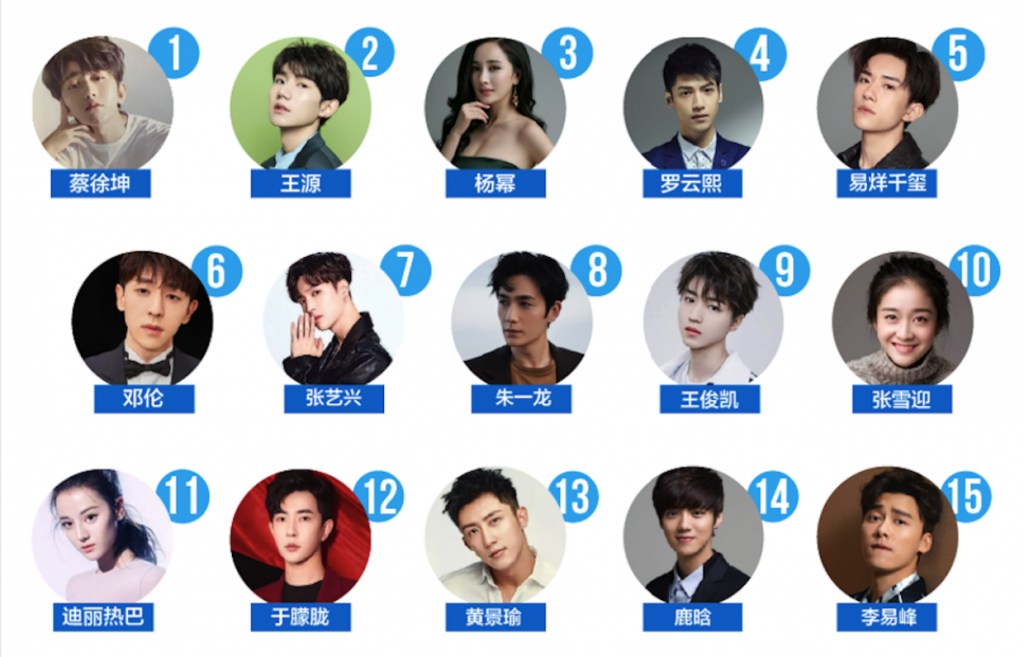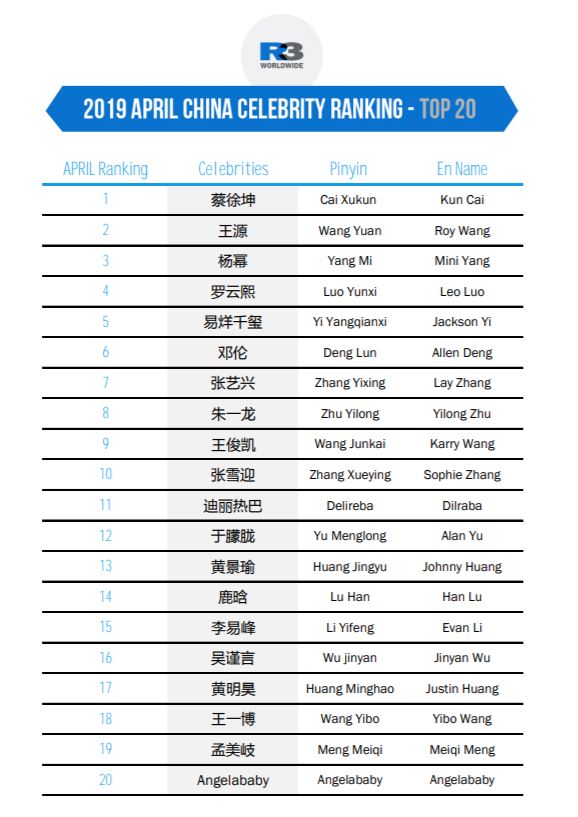Chinese celebrities’ public persona and why it matters to luxury brands
What is truly behind Wang’s smoking scandal is a question on the authenticity of Chinese celebrities’ public persona, or renshe (人设) in Chinese pinyin. From a publicly-known “good boy” to a “bad boy”, Wang’s public persona collapsed when he was spotted smoking. That upset some fans who like him for his public persona.
In the past decade, China’s entertainment industry has evolved at a rapid pace and talent managers are increasingly adept in understanding ordinary people’s emotional needs and mentality — thus, creating stars and idols that fit their needs. Consequently, a mismatch of a celebrity’s true personality and his or her public persona will bring inherent risks to luxury brands who work with them. Thorough research to really get to know the celebrity before signing is always needed.
Methodology:
The following ranking of 20 top celebrity influencers in March is calculated using data from Weibo’s Fan Base (calculating Activity, Adorable, and Social Influence Indexes), Toutiao, Baidu, and WeChat.
Weibo assumes the most weight, as it’s the platform where fan engagement can be traced. The Baidu, Toutiao, and Wechat indexes are more based on search behavior. The data from Weibo helps indicate the commercial value for each celebrity, especially for the Adorable index where fans actually use a pay function to express their admiration for a celebrity.
- Activity Index: The Activity Index counts the number of interactions on Weibo, which is a statistical indicator of interactions (including forwarding, commenting, likes, replying to comments, and comment likes on Weibo) generated by the content posted by the star over the past 30 days (including posts, comments).
- Adorable Index: This refers to the contribution of fans to the celebrity. Weibo has a mechanism where fans can contribute their admiration to the celebrity by giving virtual flowers which aren’t free. The adorable index is generated from the number of flowers the celebrity receives monthly.
- Social Influence Index: There’s a large number of users publishing microblogs daily that mention celebrities. These microblogs are read by other users, and the number of readings reflects the recent popularity of a celebrity. In addition, a large number of users search for celebrities on Weibo every day, and the search volume generated also reflects the recent popularity of those celebrities. This data adds up to the social influence index of the celebrity.
–This article first appeared on Jing Daily.







